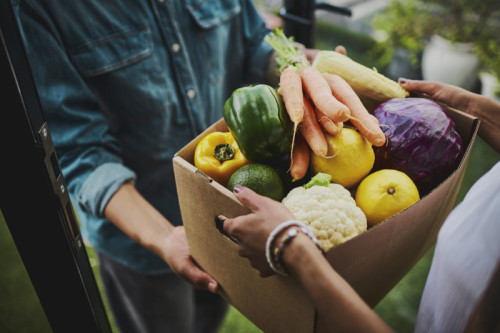
A recent study has unveiled innovative methods to reduce costs and improve sustainability for small food producers. Led by Dr. Arijit De of Alliance Manchester Business School, the research was published in the Transportation Research journal and focuses on enhancing the efficiency of local food hubs. These hubs serve as centralized marketplaces where farmers and small food businesses can deliver their products for packing and distribution to consumers.
The current logistics of local food distribution often lead to increased costs and environmental harm. Many producers operate independently, making multiple trips over long distances to deliver small quantities. This practice not only escalates transport expenses but also results in unexpectedly high carbon emissions, despite the label of “local.” Rural producers face particularly steep distribution costs due to extended travel distances and limited delivery points, making their operations less efficient.
The research team collaborated with Food and Drink North East (FADNE), a community business in Newcastle that launched the Local Heroes hub during the Covid-19 pandemic lockdowns. This initiative has enabled over 150 producers, including dairy farmers and craft brewers, to sell directly to households. By analyzing real delivery data, the researchers developed a model to evaluate various scenarios.
Their findings indicate that improved sharing of transport resources among producers can significantly lower delivery costs and reduce fuel consumption. Transitioning from diesel vans to electric vehicles could potentially decrease costs by nearly one-third and cut carbon emissions by up to 70%.
These results bear significant implications for families grappling with rising living costs. Increasing delivery efficiency can help keep food prices down while also supporting small businesses. This is particularly crucial in rural areas, where high logistics costs have historically constrained farmer incomes and limited consumer access to affordable food.
Barbara Tocco, co-author and researcher at Newcastle University, noted, “The North East has some of England’s highest child poverty levels, but also a growing demand for healthy, locally produced food. This work shows how smarter logistics can help more people access it without harming the environment.”
The study also underscores the importance of resilience. During the Covid-19 pandemic, when supermarket supplies dwindled, food hubs played a critical role in connecting farmers directly with consumers. Strengthening these networks will be essential for communities to endure future challenges, whether from pandemics, rising fuel costs, or climate change.
The researchers aspire for their model to be adopted by food hubs across the UK and Europe. With the agricultural sector facing economic and environmental pressures, even small adjustments in delivery routes and vehicle choices could yield substantial benefits. The findings build upon the team’s previous research, which has been featured on the EU’s business advice platform EU4Advice, as well as being cited in discussions within the UK Parliament concerning freight emissions and supply chain issues.






